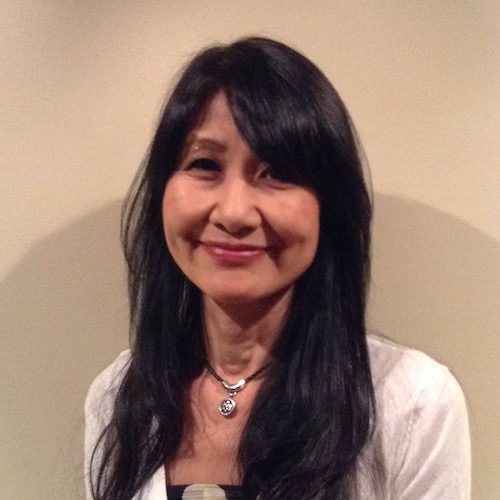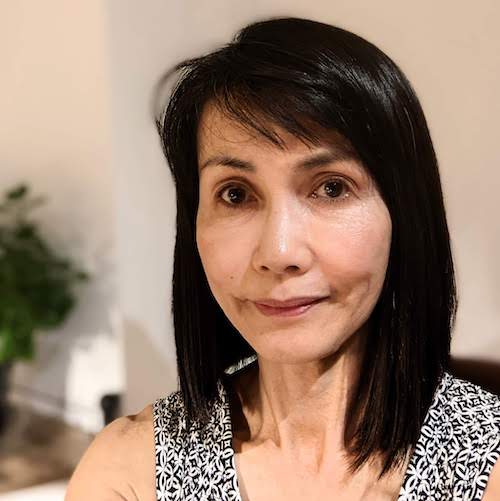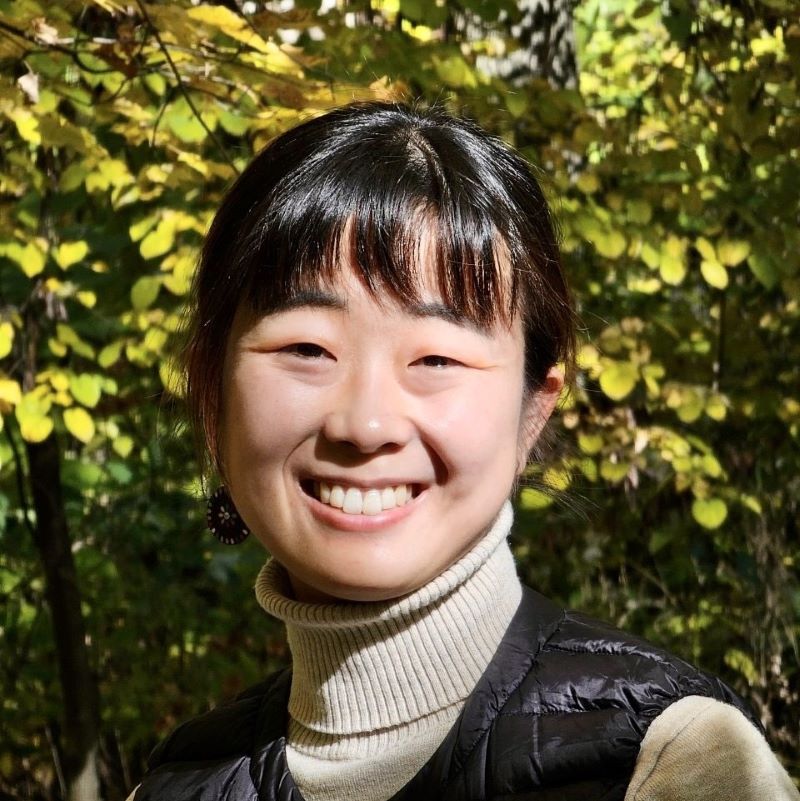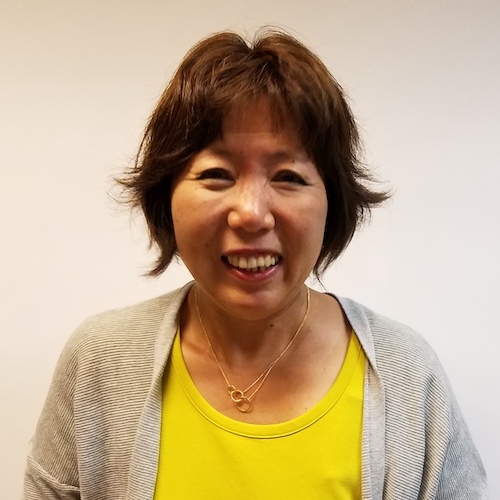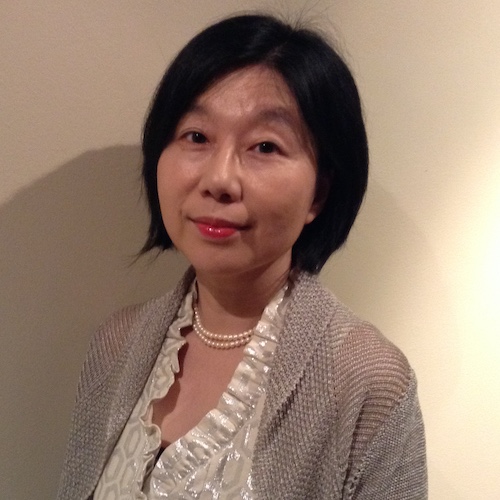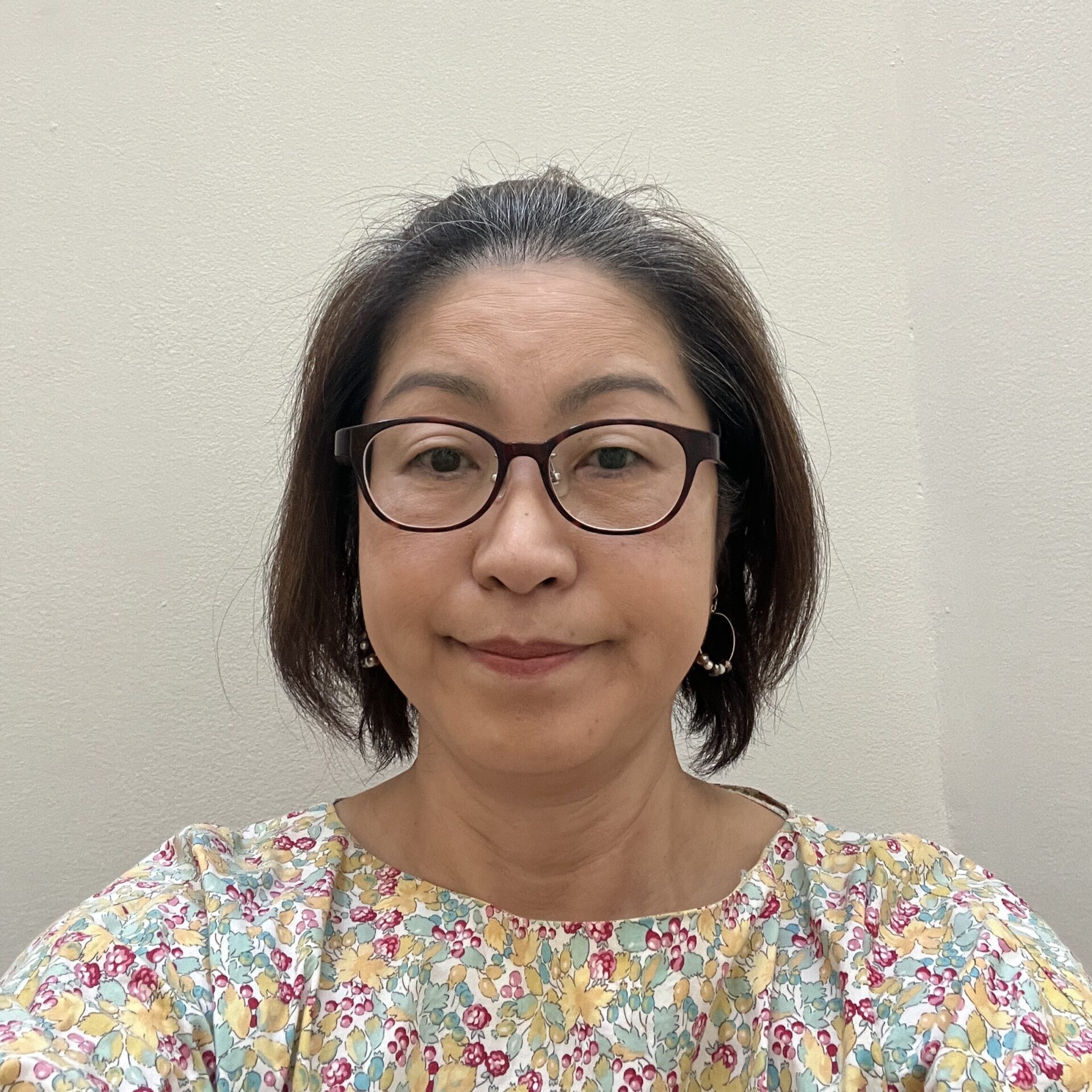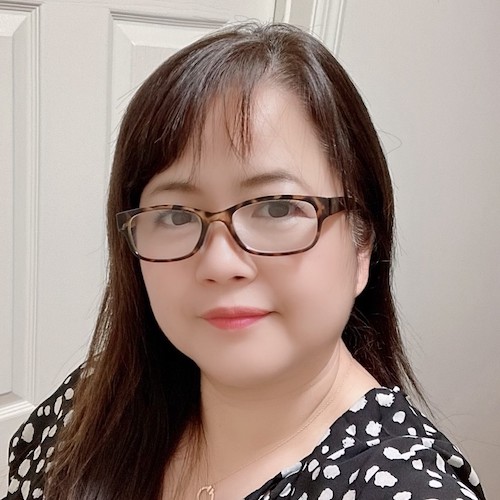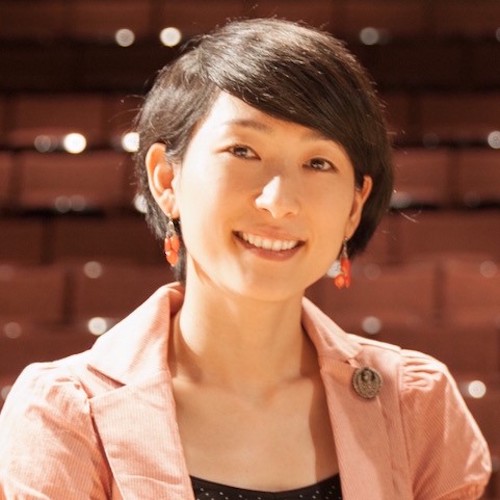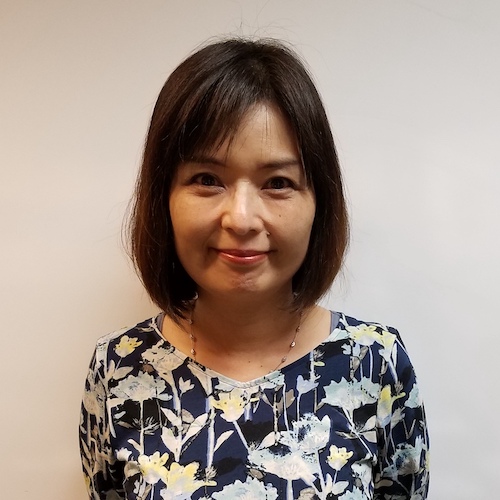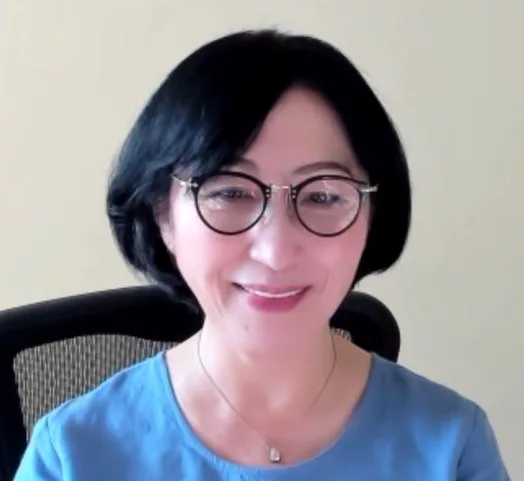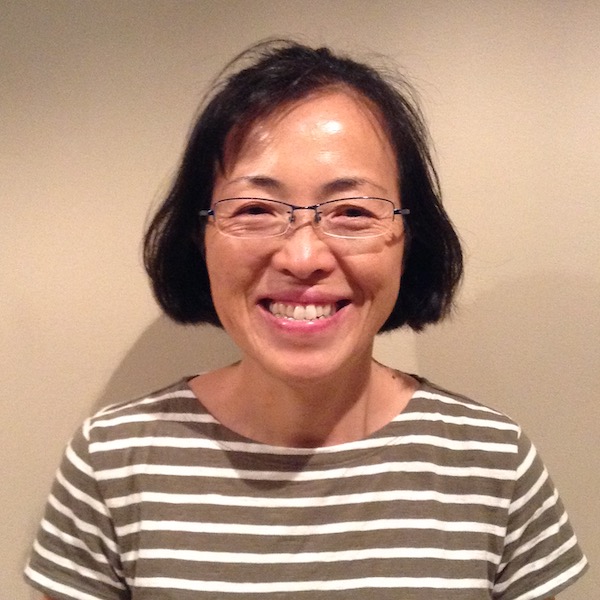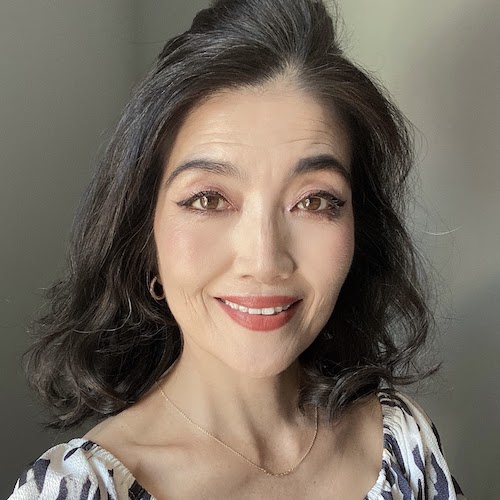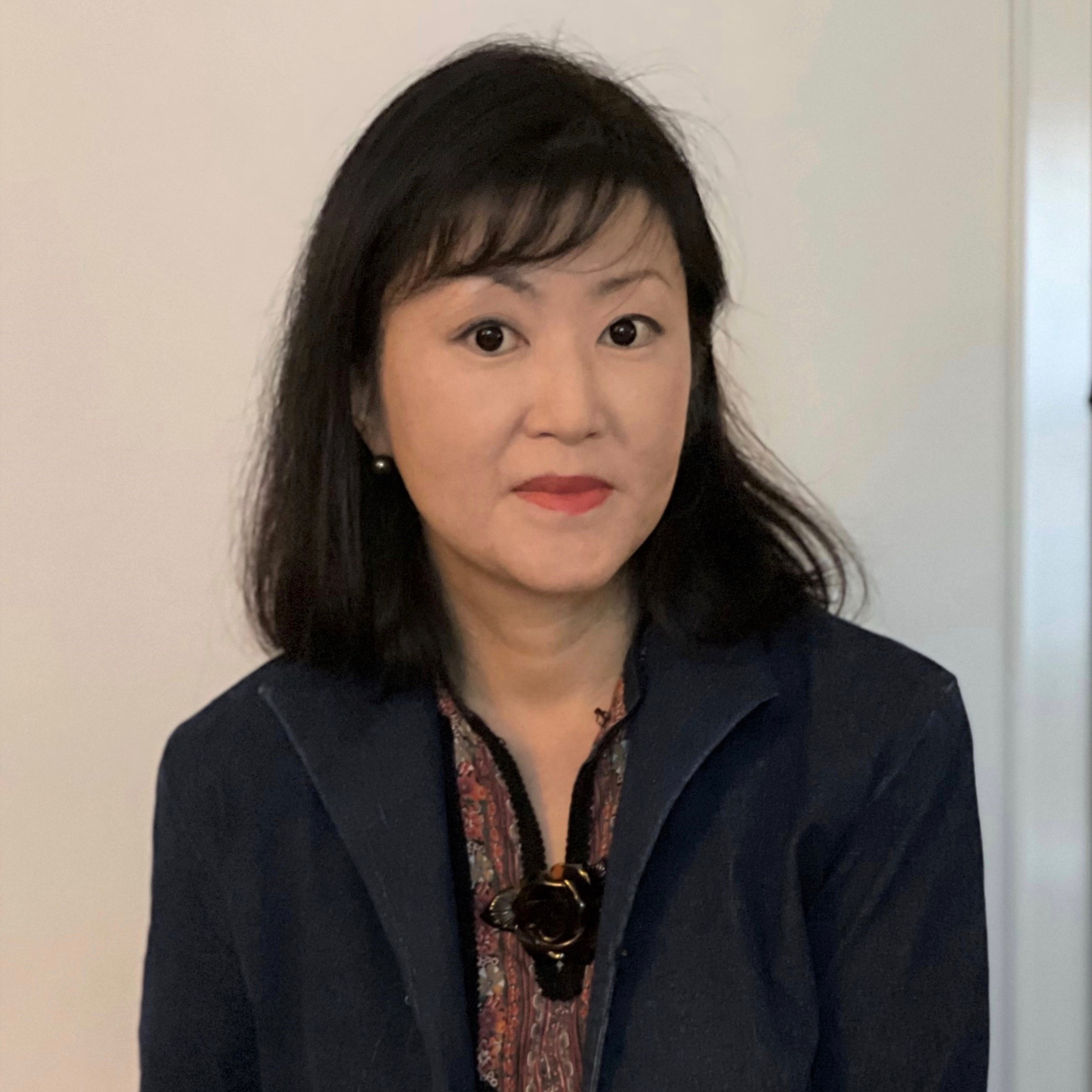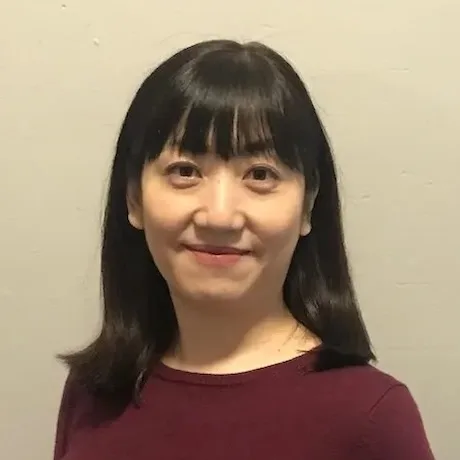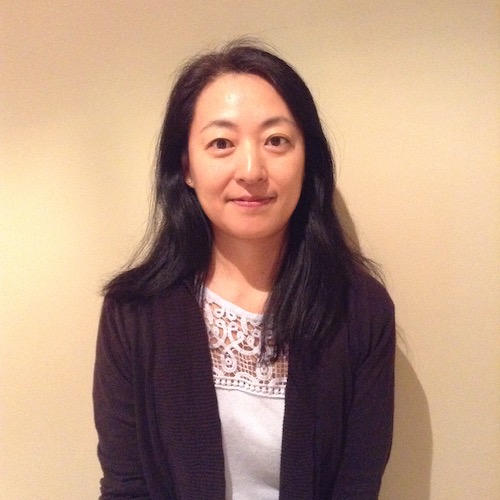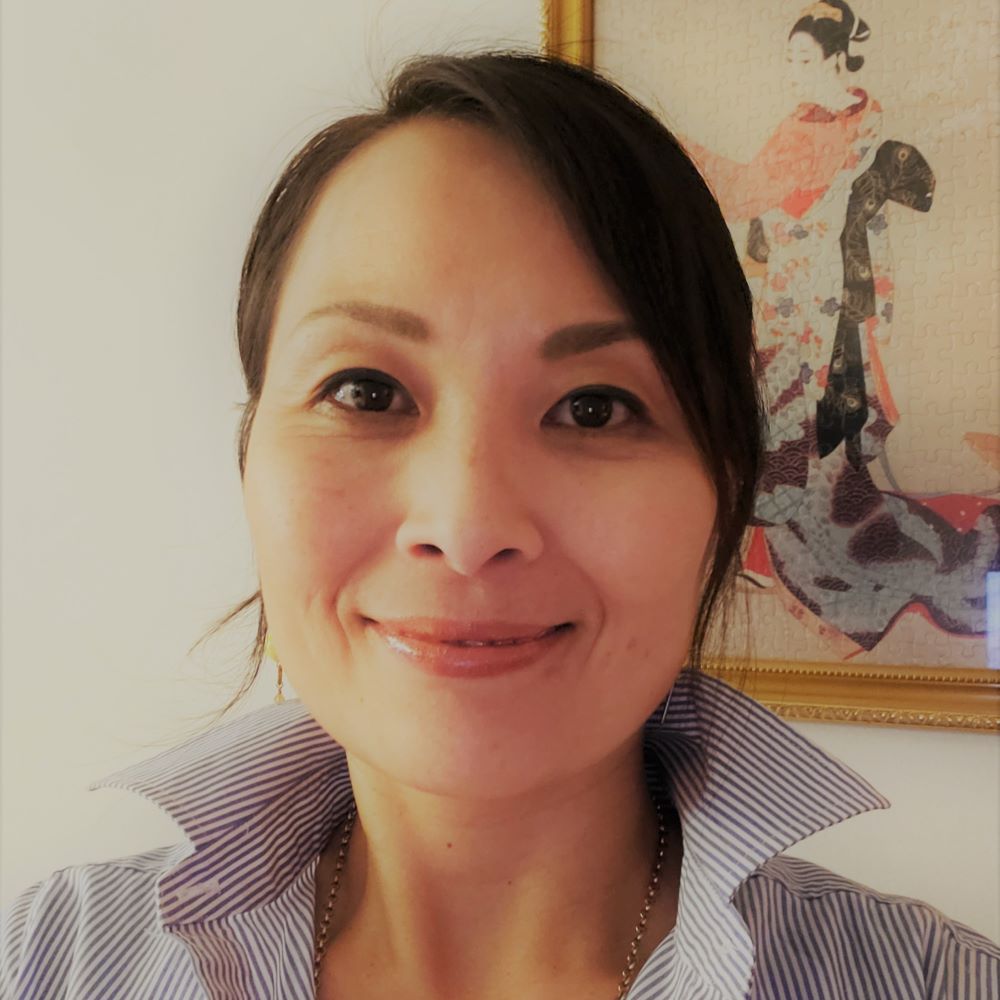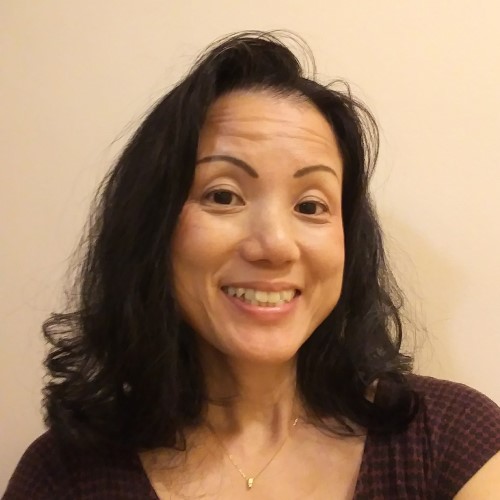Course Information
This 10-week session offers our core curriculum of Japanese Courses (Levels 1 – 13). With a full span of levels and special topic courses, beginner to advanced students can learn to speak, read, and write Japanese.
New students with no previous background in Japanese should enroll in a Level 1 course. Students with some background should refer to the Japanese Level Guide or course textbooks to determine the most appropriate class.
These courses are designed for adults aged 18 and above.
Courses are either online via Zoom, or in-person at Japan Society in NYC. All times are New York time (ET).
ONLINE COURSES: To participate fully, you will need access to a device with internet, microphone, and camera (such as a laptop, tablet, or smartphone).
IN-PERSON COURSES: In the event of inclement weather or other circumstances, a class may need to be conducted online or on another date. By signing up for a course, you assume this risk and understand that circumstances may change. Please see full details under “How to Register.”
To see the full list of Japanese courses please keep scrolling down or refer to the printer-friendly PDF version: 2025 Summer Japanese Courses (PDF).
Courses are listed by increasing difficulty/level. Please note that the letter designates a different time/date/section, not an increase of level (e.g., 1-A and 1-B are different sections but both cover Level 1). Select a level to learn more:
Level 1 | Level 2 | Level 3 | Level 4 | Level 5
Level 6 | Level 7 | Level 8 | Level 9
Level 10* | Level 11* | Level 12* | Level 13*
*PLEASE NOTE: Most courses above Level 9 are designed to be taken repeatedly. See course description for details. It is expected that students take the same level multiple times before moving to the next level.
**Enrollment in kanji courses alongside the core curriculum (numbered levels) is recommended for students at Level 5 and above. Although kanji-only courses are not offered this 10-week session, you may instead be interested in the JLPT & Kanji courses which include both JLPT prep and kanji study.
Special topic courses this semester include the following:
JLPT & Kanji courses**: N5 | N4 | N3 | N2 | N1
Review: Genki I and Review: Genki II
Kigaru na Kaiwa
Special 10: Japan Right Now
For tuition & registration, additional information, cancellation policy, course policies, and textbooks & instructors, please see further down after the course list.
Course Descriptions
Japanese 1-A
ONLINE·10 classes·Nagi Fujie
Japanese Level 1 Description (All sections)
(for students with no or little basic grammar knowledge in Japanese, meets once a week)
The course is designed to introduce elementary Japanese to students with no previous background in the language. Basic vocabulary, grammar and sentence structures will be taught in romaji (Japanese written phonetically in the Roman alphabet) so students can carry on a simple conversation. Hiragana and some introductory kanji will be introduced.
Students will be introduced to the following:- X wa Y desu.
- Question sentences
- This/that/which
- Here/there/over there/where
- Verb conjugation (present tense)
- Sentence particles
Required Textbook: Genki I, 3rd Edition (Ch. 1-3)
1-A CLASS FULL; to be added to the waitlist, please email [email protected] or call 212-715-1269.Japanese 1-B
Wednesdays, May 21-July 30, 6:30-8:20 pm ET
(no class 5/28)ONLINE·10 classes·Miho Kobayashi
All Level 1 courses cover the same material. For course description, see Level 1-A above.
1-B CLASS FULL; to be added to the waitlist, please email [email protected] or call 212-715-1269.Japanese 1-C
Thursdays, May 22-July 31, 6:30-8:20 pm ET
(no class 6/19)ONLINE·10 Classes·Kaoru Shinohara
All Level 1 courses cover the same material. For course description, see Level 1-A above.
1-C CLASS FULL; to be added to the waitlist, please email [email protected] or call 212-715-1269.Japanese 1-D
Fridays, May 23-August 1, 12-1:50 pm ET
(no class 7/4)ONLINE·10 classes·Yukie Yamaguchi
All Level 1 courses cover the same material. For course description, see Level 1-A above.Japanese 1-E
Mondays, May 19-July 28, 4 – 5:50 pm ET
(no class 5/26)ONLINE·10 classes·Yukari Aoki
All Level 1 courses cover the same material. For course description, see Level 1-A above.Japanese 1-F
Tuesdays, May 20-July 29, 6:10-8 pm ET
(no class 5/27)IN-PERSON·10 classes·Yoko Sakurai
All Level 1 courses cover the same material. For course description, see Level 1-A above.
1-F CLASS FULL; to be added to the waitlist, please email [email protected] or call 212-715-1269.Japanese 1-G
Fridays, May 23-August 1, 6:10-8 pm ET
(no class 7/4)IN-PERSON·10 classes·Kazue Kurahara
All Level 1 courses cover the same material. For course description, see Level 1-A above.
1-G CLASS FULL; to be added to the waitlist, please email [email protected] or call 212-715-1269.Japanese 1-H
Mondays, May 19-July 28, 12 – 1:50 pm ET
(no class 5/26)IN-PERSON·10 classes·Momoyo Kitaura
All Level 1 courses cover the same material. For course description, see Level 1-A above.Japanese 1-J
Tuesdays, May 20-July 29, 4-5:50 pm ET
(no class 5/27)IN-PERSON·10 classes·Yoko Sakurai
All Level 1 courses cover the same material. For course description, see Level 1-A above.Japanese 1-K
Wednesdays, May 21-July 30, 4-5:50 pm ET
(no class 5/28)IN-PERSON·10 classes·Yoko Kawai
All Level 1 courses cover the same material. For course description, see Level 1-A above.Japanese 1&2-A
Mondays & Wednesdays, May 19-July 30, 6:30-8:20 pm ET
(no class 5/26, 5/28)ONLINE·20 classes·Rika Kobayashi
Japanese Level 1&2 Description (All sections)
(for students with no or little basic grammar knowledge in Japanese, meets twice a week)
This fast-track course covers Levels 1 and 2, and is designed to introduce elementary Japanese.Level 1: Basic vocabulary, grammar and sentence structures will be taught in romaji (Japanese written phonetically in the Roman alphabet) so students can carry on a simple conversation. Hiragana and some introductory kanji will be introduced. Students will be introduced to the following:
- X wa Y desu.
- Question sentences
- This/that/which
- Here/there/over there/where
- Verb conjugation (present tense)
- Sentence particles
Level 2: Students will continue to develop their beginners’ level language skills in basic Japanese as they begin to apply the past tense and are introduced to new words, grammar, and expressions. Recognition of hiragana is expected as less romaji will be used. Katakana and a few more kanji will be introduced. Students will be introduced to the following:
- X ga arimasu/imasu.
- Location description
- Adjectives (present and past tense)
- Suki (na)/ Kirai (na)
- mashou ka
Required Textbook: Genki I, 3rd Edition (Ch. 1-5)
1&2-A CLASS FULL; to be added to the waitlist, please email [email protected] or call 212-715-1269.Japanese 1&2-B
Tuesdays & Thursdays, May 20-July 31, 12-1:50 pm ET
(no class 5/27, 6/19)ONLINE·20 classes·Atsuko ShioJapanese 2-A
Mondays, May 19-July 28, 6:30-8:20 pm ET
(no class 5/26)ONLINE·10 classes·Kaoru Shinohara
Japanese Level 2 Description (All sections)
Prerequisite: Japanese 1 or equivalent; most importantly, students must understand how to use the particles wa, o, de, ni, and e, and be able to make sentences such as, “I eat a sandwich at a restaurant at 1 o’clock.” For a full list of grammar patterns covered in Level 1, see Level Guide (Numbered Levels). Recognition of hiragana is also expected.
Students will continue to develop their beginners’ level language skills in basic Japanese as they begin to apply the past tense and are introduced to new words, grammar, and expressions. Recognition of hiragana is expected as less romaji will be used. Katakana and a few more kanji will be introduced.
Students will be introduced to the following:- X ga arimasu/imasu.
- Location description
- Adjectives (present and past tense)
- Suki (na)/ Kirai (na)
- mashou ka
Required Text: Genki I, 3rd Edition (Ch. 4 & 5)
2-A CLASS FULL; to be added to the waitlist, please email [email protected] or call 212-715-1269.Japanese 2-B
Mondays, May 19-July 28, 6:30-8:20 pm ET
(no class 5/26)ONLINE·10 classes·Kana Toda
All Level 2 courses cover the same material. For course description, see Level 2-A above.Japanese 2-C
Wednesdays, May 21-July 30, 6:30-8:20 pm ET
(no class 5/28)ONLINE·10 classes·Kaoru Shinohara
All Level 2 courses cover the same material. For course description, see Level 2-A above.Japanese 2-D
Fridays, May 23-August 1, 6:30-8:20 pm ET
(no class 7/4)ONLINE·10 classes·Yukari Aoki
All Level 2 courses cover the same material. For course description, see Level 2-A above.
2-D CLASS CANCELLED.Japanese 2-E
Wednesdays, May 21-July 30, 12-1:50 pm ET
(no class 5/28)ONLINE·10 classes·Atsuko Shio
All Level 2 courses cover the same material. For course description, see Level 2-A above.Japanese 2-F
Wednesdays, May 21-July 30, 4-5:50 pm ET
(no class 5/28)ONLINE·10 classes·Yukari Aoki
All Level 2 courses cover the same material. For course description, see Level 2-A above.Japanese 2-G
Mondays, May 19-July 28, 6:10-8 pm ET
(no class 5/26)IN-PERSON·10 classes·Momoyo Kitaura
All Level 2 courses cover the same material. For course description, see Level 2-A above.
2-G CLASS FULL; to be added to the waitlist, please email [email protected] or call 212-715-1269.Japanese 2-H
Fridays, May 23-August 1, 6:10-8 pm ET
(no class 7/4)IN-PERSON·10 classes·Kenko Ogino
All Level 2 courses cover the same material. For course description, see Level 2-A above.Japanese 2-J
Tuesdays, May 20-July 29, 12-1:50 pm ET
(no class 5/27)IN-PERSON·10 classes·Yumi Mori
All Level 2 courses cover the same material. For course description, see Level 2-A above.Japanese 2-K
Fridays, May 23-August 1, 4-5:50 pm ET
(no class 7/4)IN-PERSON·10 classes·Yumi Mori
All Level 2 courses cover the same material. For course description, see Level 2-A above.
2-K CLASS FULL; to be added to the waitlist, please email [email protected] or call 212-715-1269.Japanese 3-A
Thursdays, May 22-July 31, 6:30-8:20 pm ET
(no class 6/19)ONLINE·10 classes·Yukari Aoki
Japanese Level 3 Description (All sections)
(Prerequisite: Japanese 2 or equivalent, and recognition of hiragana and some katakana is required as the textbook no longer uses romaji)
This course will focus on the introduction and use of the te form of verbs, and students will continue to build upon their conversational skills and vocabulary.
Required Text: Genki I, 3rd Edition (Ch. 6 & 7)Japanese 3-B
Fridays, May 23-August 1, 6:30-8:20 pm ET
(no class 7/4)ONLINE·10 classes·Mari Nakamura
All Level 3 courses cover the same material. For course description, see Level 3-A above.Japanese 3-C
Mondays, May 19-July 28, 12-1:50 pm ET
(no class 5/26)ONLINE·10 classes·Rika Kobayashi
All Level 3 courses cover the same material. For course description, see Level 3-A above.Japanese 3-D
Tuesdays, May 20-July 29, 4:-5:50 pm ET
(no class 5/27)ONLINE·10 classes·Yukari Aoki
All Level 3 courses cover the same material. For course description, see Level 3-A above.Japanese 3-E
Tuesdays, May 20-July 29, 6:10-8 pm ET
(no class 5/27)IN-PERSON·10 classes·Yuko Aizawa
All Level 3 courses cover the same material. For course description, see Level 3-A above.
3-E CLASS FULL; to be added to the waitlist, please email [email protected] or call 212-715-1269.Japanese 3-F
Wednesdays, May 21-July 30, 6:10-8 pm ET
(no class 5/28)IN-PERSON·10 classes·Yukie Yamaguchi
All Level 3 courses cover the same material. For course description, see Level 3-A above.
3-F CLASS FULL; to be added to the waitlist, please email [email protected] or call 212-715-1269.Japanese 3-G
Thursdays, May 22-July 31, 6:10-8 pm ET
(no class 6/19)IN-PERSON·10 classes·Yumiko Kakutani
All Level 3 courses cover the same material. For course description, see Level 3-A above.Japanese 3-H
Wednesdays, May 21-July 30, 12-1:50 pm ET
(no class 5/28)IN-PERSON·10 classes·Momoyo Kitaura
All Level 3 courses cover the same material. For course description, see Level 3-A above.Japanese 3-J
Mondays, May 19-July 28, 4-5:50 pm ET
(no class 5/26)IN-PERSON·10 classes·Yumi Mori
All Level 3 courses cover the same material. For course description, see Level 3-A above.Japanese 3&4-A
Mondays & Wednesdays, May 19-July 30, 6:30-8:20 pm ET
(no class 5/26, 5/28)ONLINE·20 classes·Yukari Aoki
Japanese Level 3&4 Description (All sections)
(Prerequisite: Japanese 2 or equivalent, and recognition of hiragana and some katakana is required as the textbook no longer uses romaji)
This fast-track course covers Levels 3 & 4.
Level 3: This course will focus on the introduction and use of the te form of verbs, and students will continue to build upon their conversational skills and vocabulary.
Level 4: Students will practice the informal speech style in the present and past tenses. The ta form will be introduced, and students will learn to modify nouns with verbs, as well as practice phrases using to omoimasu (“I think”) and to iimasu (“he/she says”).
Required Text: Genki I, 3rd Edition (Ch. 6-9)Japanese 3&4-B
Mondays & Wednesdays, May 19-July 30, 12-1:50 pm ET
(no class 5/26, 5/28)ONLINE·20 classes·Nagi Fujie
All Level 3&4 courses cover the same material. For course description, see Level 3&4-A above.Japanese 3&4-C
Tuesdays & Fridays, May 20-August 1, 6:10-8 pm ET
(no class 5/27, 7/4)IN-PERSON·20 classes·Yumi Mori
All Level 3&4 courses cover the same material. For course description, see Level 3&4-A above.Japanese 3&4-D
Wednesdays & Fridays, May 21-August 1, 12-1:50 pm ET
(no class 5/28, 7/4)IN-PERSON·20 classes·Yumiko KakutaniJapanese 4-A
Wednesdays, May 21-July 30, 6:30-8:20 pm ET
(no class 5/28)ONLINE·10 classes·Atsuko Shio
Japanese Level 4 Description (All sections)
(Prerequisite: Japanese 3 or equivalent)
Students will practice the informal speech style in the present and past tenses, and will learn the nai form of verbs. The ta form will be introduced, and students will learn to modify nouns with verbs, as well as practice phrases using to omoimasu (“I think”) and to iimasu (“he/she says”).
Required text: Genki I, 3rd Edition (Ch. 8-9)Japanese 4-B
Thursdays, May 22-July 31, 6:30–8:20 pm ET
(no class 6/19)ONLINE·10 classes·Atsuko Shio
All Level 4 courses cover the same material. For course description, see Level 4-A above.Japanese 4-C
Thursdays, May 22-July 31, 12–1:50 pm ET
(no class 6/19)ONLINE·10 classes·Momoyo Kitaura
All Level 4 courses cover the same material. For course description, see Level 4-A above.Japanese 4-D
Wednesdays, May 21-July 30, 6:10-8 pm ET
(no class 5/28)IN-PERSON·10 classes·Kazue Kurahara
All Level 4 courses cover the same material. For course description, see Level 4-A above.
4-D CLASS FULL; to be added to the waitlist, please email [email protected] or call 212-715-1269.Japanese 4-E
Thursdays, May 22-July 31, 6:10–8 pm ET
(no class 6/19)IN-PERSON·10 classes·Mami Nakanishi
All Level 4 courses cover the same material. For course description, see Level 4-A above.Japanese 4-F
Tuesdays, May 20-July 29, 4-5:50 pm ET
(no class 5/27)IN-PERSON·10 classes·Yuko AizawaJLPT & Kanji N5
Tuesdays, May 20-July 29, 6:30-8:20 pm ET
(no class 5/27)ONLINE·10 classes·Keiko Hama
JLPT & Kanji N5
(Prerequisite: Japanese 4 or equivalent).
This course is structured to help prepare students for the N5 level of the Japanese-Language Proficiency Test (JLPT), which requires knowledge of approximately 100 kanji. Students will focus on mastering some of these kanji for the N5 test, as well as study other JLPT N5 content such as reading comprehension, grammar, and vocabulary.
No textbook is required.Japanese 5-A
Tuesdays, May 20-July 29, 6:30-8:20 pm ET
(no class 5/27)ONLINE·10 classes·Rika Kobayashi
Japanese Level 5 Description (All sections)
(Prerequisite: Japanese 4 or equivalent)
Students will learn various usages of the ta form, and comparative sentence patterns will be introduced. Enrollment in a Kanji course is recommended for those who would like to strengthen their kanji reading and recognition, including kanji from the Level 1-9 progression; although kanji-only courses are not offered this session, you may instead be interested in a JLPT & Kanji course which includes both JLPT prep and kanji study.
Required text: Genki I, 3rd Edition (Ch. 10 & 11)Japanese 5-B
Thursdays, May 22-July 31, 6:30-8:20 pm ET
(no class 6/19)ONLINE·10 classes·Yumi Mori
All Level 5 courses cover the same material. For course description, see Level 5-A above.Japanese 5-C
Mondays, May 19-July 28, 12-1:50 pm ET
(no class 5/26)ONLINE·10 classes·Kaoru Shinohara
All Level 5 courses cover the same material. For course description, see Level 5-A above.Japanese 5-D
Tuesdays, May 20-July 29, 6:10-8 pm ET
(no class 5/27)IN-PERSON·10 classes·Mana Kobuchi
All Level 5 courses cover the same material. For course description, see Level 5-A above.Japanese 5-E
Wednesdays, May 21-July 30, 6:10-8 pm ET
(no class 5/28)IN-PERSON·10 classes·Kenko Ogino
All Level 5 courses cover the same material. For course description, see Level 5-A above.Japanese 5-F
Wednesdays, May 21-July 30, 12-1:50pm ET
(no class 5/28)IN-PERSON·10 classes·Yumi Mori
All Level 5 courses cover the same material. For course description, see Level 5-A above.Japanese 5&6-A
Tuesdays & Fridays, May 20-August 1, 6:30-8:20 pm ET
(no class 5/27, 7/4)ONLINE·20 classes·Kaoru Shinohara
Japanese Level 5&6 Description (All sections)
(Prerequisite: Japanese 4 or equivalent)
This fast-track course covers Levels 5 & 6. Enrollment in a Kanji course is recommended for those who would like to strengthen their kanji reading and recognition, including kanji from the Level 1-9 progression; although kanji-only courses are not offered this session, you may instead be interested in a JLPT & Kanji course which includes both JLPT prep and kanji study.
Level 5: Students will learn various usages of the ta form, and comparative sentence patterns will be introduced.
Level 6: Students will learn how to use various modifying clauses to create complex sentences.
Required text: Genki I, 3rd Edition (Ch. 10 – 12), Genki II, 3rd Edition (Ch. 13 & 14)Japanese 5&6-B
Tuesdays & Thursdays, May 20-July 31, 12-1:50 pm ET
(no class 5/27, 6/19)ONLINE·20 classes·Nagi FujieReview: Genki I-A
Tuesdays, May 20-July 29, 6:30-8:20 pm ET
(no class 5/27)ONLINE·10 classes·Mami Nakanishi
Review: Genki I Description
(Prerequisite: Japanese 5 or equivalent)
This course is designed for students who have completed Level 5, but feel the need to review the content of the Genki I textbook before moving up to Level 6. The course focuses on reviewing the grammar points and increasing vocabulary so that students gain more confidence in speaking Japanese with an accurate command of grammar. Special focus will be placed on: verb conjugation, adjective conjugation, te-form/ta-form, and nai-form. Also, common mistakes in the use of particles (は、が、を、に、で、と) and expressions such as これ/この、どの/どんな、なに/なん will be addressed. Upon completion of this course, students will be able to speak Japanese more comfortably with a refreshed grasp of grammar.
The Genki I textbook content will be referenced, but no textbook is required.Review: Genki I-B
Tuesdays, May 20-July 29, 12-1:50 pm ET
(no class 5/27)IN-PERSON·10 classes·Momoyo KitauraJapanese 6-A
Mondays, May 19-July 28, 6:30-8:20 pm ET
(no class 5/26)ONLINE·10 classes·Atsuko Shio
Japanese Level 6 Description (All sections)
(Prerequisite: Japanese 5 or equivalent. Recognition of 100 kanji is expected.)
Students will learn how to use various modifying clauses to create complex sentences. Enrollment in a Kanji course is recommended for those who would like to strengthen their kanji reading and recognition, including kanji from the Level 1-9 progression; although kanji-only courses are not offered this session, you may instead be interested in a JLPT & Kanji course which includes both JLPT prep and kanji study.
Required text: Genki I, (Ch. 12) (purchase of Genki I textbook not required), Genki II, 3rd Edition (Ch. 13-14)Japanese 6-B
Fridays, May 23-August 1, 6:30-8:20 pm ET
(no class 7/4)ONLINE·10 classes·Mami Nakanishi
All Level 6 courses cover the same material. For course description, see Level 6-A above.Japanese 6-C
Mondays, May 19-July 28, 6:10-8 pm ET
(no class 5/26)IN-PERSON·10 classes·Yuko Aizawa
All Level 6 courses cover the same material. For course description, see Level 6-A above.Japanese 6-D
Tuesdays, May 20-July 29, 6:10-8 pm ET
(no class 5/27)IN-PERSON·10 classes·Kaori MurataJapanese 7-A
Wednesdays, May 21-July 30, 6:30-8:20 pm ET
(no class 5/28)ONLINE·10 classes·Mari Nakamura
Japanese Level 7 Description (All sections)
(Prerequisite: Japanese 6 or equivalent)
Students will be introduced to the volitional form, and will learn to describe the giving and receiving of services (instead of goods). The structure for reporting hearsay (sou desu) will be practiced. The tara variation of conditional sentence structures will be taught. Enrollment in a Kanji course is recommended for those who would like to strengthen their kanji reading and recognition, including kanji from the Level 1-9 progression; although kanji-only courses are not offered this session, you may instead be interested in a JLPT & Kanji course which includes both JLPT prep and kanji study.
Required text: Genki II, 3rd Edition, (Ch. 15-17).Japanese 7-B
Wednesdays, May 21-July 30, 6:10-8 pm ET
(no class 5/28)IN-PERSON·10 classes·Yumi Mori
All Level 7 courses cover the same material. For course description, see Level 7-A above.Japanese 7-C
Mon., 9/15 – 12/1, 6:10 – 8:00 pm ET
(no class 9/22, 10/13)IN-PERSON·10 classes·Yuko Aizawa
All Level 7 courses cover the same material. For course description, see Level 7-A above.
Japanese 7-C
Mondays, May 19-July 28, 12-1:50 pm ET
(no class 5/26)IN-PERSON·10 classes·Mami Nakanishi
All Level 7 courses cover the same material. For course description, see Level 7-A above.
7-C CLASS CANCELED.Japanese 7-D
Wednesdays, May 21-July 30, 4-5:50 pm ET
(no class 5/28)IN-PERSON·10 classes·Yumi Mori
All Level 7 courses cover the same material. For course description, see Level 7-A above.Japanese 7&8-A
Tuesdays & Thursdays, May 20-July 31, 12-1:50 pm ET
(no class 5/27, 6/19)ONLINE·20 classes·Mami Nakanishi
Japanese Level 7&8 Description (All sections)
(Prerequisite: Japanese 6 or equivalent)
This fast-track course covers Levels 7 & 8. Enrollment in a Kanji course is recommended for those who would like to strengthen their kanji reading and recognition, including kanji from the Level 1-9 progression; although kanji-only courses are not offered this session, you may instead be interested in a JLPT & Kanji course which includes both JLPT prep and kanji study.
Level 7: Students will be introduced to the volitional form, and will learn to describe the giving and receiving of services (instead of goods). The structure for reporting hearsay (sou desu) will be practiced. The tara variation of conditional sentence structures will be taught.
Level 8: Transitive and intransitive verbs will be compared extensively, and honorific verbs will be introduced. Hazudesu (supposed to be the case) will be taught. Students will practice “extra-modest expressions” followed by “humble expressions.” Students will also study how to include a question as a part of a longer sentence such as “Do you know when David will go to Japan?”
Required text: Genki II, 3rd Edition, (Ch. 15-20).Japanese 7&8-B
Mondays & Wednesdays, May 19-July 30, 6:10-8 pm ET
(no class 5/26, 5/28)IN-PERSON·20 classes·Mami NakanishiJapanese 8-A
Tuesdays, May 20-July 29, 6:30-8:20 pm ET
(no class 5/27)ONLINE·10 classes·Yukari Aoki
Japanese Level 8 Description
(Prerequisite: Japanese 7 or equivalent)
Transitive and intransitive verbs will be compared extensively, and honorific verbs will be introduced. Hazudesu (supposed to be the case) will be taught. Students will practice “extra-modest expressions” followed by “humble expressions.” Students will also study how to include a question as a part of a longer sentence such as “Do you know when David will go to Japan?” Enrollment in a Kanji course is recommended for those who would like to strengthen their kanji reading and recognition, including kanji from the Level 1-9 progression; although kanji-only courses are not offered this session, you may instead be interested in a JLPT & Kanji course which includes both JLPT prep and kanji study.
Required text: Genki II, 3rd Edition, (Ch. 18-20).Japanese 8-B
Wednesdays, May 21-July 30, 6:30-8:20 pm ET
(no class 5/28)ONLINE·10 classes·Momoyo Kitaura
All Level 8 courses cover the same material. For course description, see Level 8-A above.Japanese 8-C
Mondays, May 19-July 28, 6:10-8 pm ET
(no class 5/26)IN-PERSON·10 classes·Mana KobuchiJapanese 9-A
Tuesdays, May 20-July 29, 6:30-8:20 pm ET
(no class 5/27)ONLINE·10 classes·Mari Nakamura
Japanese Level 9 Description (All sections)
(Prerequisite: Japanese 8 or equivalent)
This is the last level in which students learn essential grammar. Students will learn passive and causative sentence patterns along with other expressions, such as ba, noni and temo, to achieve more effective communication skills. Enrollment in a Kanji course is recommended for those who would like to strengthen their kanji reading and recognition, including kanji from the Level 1-9 progression; although kanji-only courses are not offered this session, you may instead be interested in a JLPT & Kanji course which includes both JLPT prep and kanji study.
Required text: Genki II, 3rd Edition, (Ch. 21-23).
9-A CLASS CANCELLED.Japanese 9-B
Thursdays, May 22-July 31, 6:30-8:20 pm ET
(no class 6/19)ONLINE·10 classes·Rika Kobayashi
All Level 9 courses cover the same material. For course description, see Level 9-A above.Japanese 9-C
Wednesdays, May 21-July 30, 6:10-8 pm ET
(no class 5/28)IN-PERSON·10 classes·Yumiko KakutaniJLPT & Kanji N4
Mondays, May 19-July 28, 6:30-8:20 pm ET
(no class 5/26)ONLINE·10 classes·Keiko Hama
JLPT & Kanji N4 Description
(Prerequisite: Japanese 8 or equivalent)
This course is structured to help prepare students for the N4 level of the Japanese-Language Proficiency Test (JLPT), which requires knowledge of approximately 180 new kanji (in addition to the 100 required for N5). Students will focus on mastering some of these kanji for the N4 test, as well as study other JLPT N4 content such as reading comprehension, grammar, and vocabulary. This course is conducted almost entirely in Japanese.
No textbook required.
JLPT & Kanji N4 CLASS FULL; to be added to the waitlist, please email [email protected] or call 212-715-1269.Review: Genki II
Mondays, May 19-July 28, 6:30 – 8:20 pm ET
(no class 5/26)ONLINE·10 classes·Kazue Kurahara
Review: Genki II Description (All sections)
(Prerequisite: Japanese 9, or concurrently with Japanese 9, or equivalent.)
There are certain grammar points that many intermediate-level students struggle with. This course offers a guided review on these notorious grammar points, including Causative-Passive, Transitive vs. Intransitive verbs, and Keigo. Students will be invited to dive into the mechanism as well as the psychology behind these grammar points through drills and speaking practice. This class will help to scatter away clouds of confusion students may have had for a long time. It will serve as a confidence booster on key grammar.
This class will reinforce students’ understanding and usage of grammar points including:- Week 1: Particles
- Week 2: Transitive vs. Intransitive
- Week 3: Conditional: 〜たら、〜と、〜ば、〜なら
- Week 4: Doing a favor: 〜てあげる、〜てもらう、〜てくれる
- Week 5: Passive & Causative-Passive
- Week 6: Noun modifiers
- Week 7: Conjecture: 〜だろう、〜かも知れない、〜らしい、〜ようだ、〜はずだ、〜みたいだ
- Week 8: Honorifics: 尊敬語、謙譲語
- Week 9 & 10: Review, Q&A
The Genki II textbook content will be referenced, but no textbook is required.Kigaru na Kaiwa
Tuesdays, May 20-July 29, 12-1:50 pm ET
(no class 5/27)IN-PERSON·10 classes·Kazue Kurahara
Kigaru na Kaiwa
(Prerequisite: Japanese 9, or equivalent)
Kigaru na Kaiwa roughly translates to “easy conversation without hesitation.” This course is recommended for students who wish to train their conversational skills in Japanese beyond the Genki II textbook content. Students will practice sharing their thoughts on various topics and situations relating to the arts, food, technology, etc., utilizing interesting reading materials or current news. Useful conversational techniques will also be introduced, such as あいづち(response words), ice breakers, finding common interests to talk about, and more
No textbook required.JLPT & Kanji N3
Wednesdays, May 21-July 30, 6:30-8:20 pm ET
(no class 5/28)ONLINE·10 classes·Keiko Hama
JLPT & Kanji N3 Description
(Recommended for students considering Level 10, or taking with Level 10 concurrently, or equivalent)
This course is structured to help prepare students for the N3 level of the Japanese-Language Proficiency Test (JLPT), which requires knowledge of approximately 370 new kanji (in addition to the 280 required for N4 and N5). Students will focus on mastering some of these kanji for the N3 test, as well as study other JLPT N3 content such as reading comprehension, grammar, and vocabulary. This course is conducted in Japanese.
No textbook required.
JLPT & Kanji N3 CLASS FULL; to be added to the waitlist, please email [email protected] or call 212-715-1269.Japanese 10.1-A (Quartet, Part 1)
Tuesdays, May 20-July 29, 6:30-8:20 pm ET
(no class 5/27)ONLINE·10 classes·Atsuko Shio
Japanese 10.1: Quartet (Part 1) Description (All sections)
(Prerequisite: level 9 or equivalent. Recognition of approximately 300 kanji from the Genki I and II textbooks is expected.)
For students who have mastered basic Japanese grammar with the Genki II textbook content, Quartet is an ideal textbook to advance to the intermediate level. It helps develop all four language skills (reading, writing, speaking, and listening) through the study of grammar and expressions needed to communicate at the intermediate level. This course is designed to provide students with the necessary tools to move up to Level 11. Enrollment in Kanji courses is recommended at this level; although kanji-only courses are not offered this session, you may instead be interested in a JLPT & Kanji course which includes both JLPT prep and kanji study.
Level 10: Quartet is offered in several parts; these parts should be taken in order, starting from Part 1. It is recommended that all parts be taken at least once before moving to Level 11.
Required Text: Quartet: Intermediate Japanese Across the Four Language Skills
Textbook 1, (Part 1: Ch. 1 -2)Japanese 10.1-B (Quartet, Part 1)
Thursdays, May 22-July 31, 4-5:50 pm ET
(no class 6/19)ONLINE·10 classes·Atsuko Shio
All Level 10.1 (Quartet, Part 1) courses cover the same material. For course description, see Level 10.1 (Quartet, Part 1) above.Japanese 10.1-C (Quartet, Part 1)
Mondays, May 19-July 28, 6:10-8 pm ET
(no class 5/26)IN-PERSON·10 classes·Yumi Mori
All Level 10.1 (Quartet, Part 1) courses cover the same material. For course description, see Level 10.1 (Quartet, Part 1) above.Japanese 10.2-A (Quartet, Part 2)
Mondays, May 19-July 28, 6:30-8:20 pm ET
(no class 5/26)ONLINE·10 classes·Mari Nakamura
Japanese 10.2 (Quartet, Part 2) Description (All sections)
(Prerequisite: level 10.1 (Quartet, Part 1), or equivalent.)
For students who have mastered basic Japanese grammar with the Genki II textbook content, Quartet is an ideal textbook to advance to the intermediate level. It helps develop all four language skills (reading, writing, speaking, and listening) through the study of grammar and expressions needed to communicate at the intermediate level. This course is designed to provide students with the necessary tools to move up to Level 11. Enrollment in Kanji courses is recommended at this level; although kanji-only courses are not offered this session, you may instead be interested in a JLPT & Kanji course which includes both JLPT prep and kanji study.
Level 10: Quartet is offered in several parts; these parts should be taken in order, starting from Part 1. It is recommended that all parts be taken at least once before moving to Level 11.
Required Text: Quartet: Intermediate Japanese Across the Four Language Skills Textbook 1, (Part 2: Ch. 3-4)Japanese 10.2-B (Quartet, Part 2)
Tuesdays, May 20-July 29, 6:30-8:20 pm ET
(no class 5/27)ONLINE·10 classes·Momoyo Kitaura
All Level 10.2 (Quartet, Part 2) courses cover the same material. For course description, see Level 10.2-A (Quartet, Part 2) above.
10.2-B CLASS FULL; to be added to the waitlist, please email [email protected] or call 212-715-1269.Japanese 10.2-C (Quartet, Part 2)
Fridays, May 23-August 1, 12-1:50 pm ET
(no class 7/4)ONLINE·10 classes·Kazue Kurahara
All Level 10.2 (Quartet, Part 2) courses cover the same material. For course description, see Level 10.2-A (Quartet, Part 2) above.Japanese 10.3-A (Quartet, Part 3)
Thursdays, May 22-July 31, 6:30-8:20 pm ET
(no class 6/19)ONLINE·10 classes·Mari Nakamura
Japanese 10.3 (Quartet, Part 3) Description (All sections)
(Prerequisite: level 10.2 (Quartet, Part 2), or equivalent.)
For students who have mastered basic Japanese grammar with the Genki II textbook content, Quartet is an ideal textbook to advance to the intermediate level. It helps develop all four language skills (reading, writing, speaking, and listening) through the study of grammar and expressions needed to communicate at the intermediate level. This course is designed to provide students with the necessary tools to move up to Level 11. Enrollment in Kanji courses is recommended at this level; although kanji-only courses are not offered this session, you may instead be interested in a JLPT & Kanji course which includes both JLPT prep and kanji study.
Level 10: Quartet is offered in several parts; these parts should be taken in order, starting from Part 1. It is recommended that all parts be taken at least once before moving to Level 11..
Required Text: Quartet: Intermediate Japanese Across the Four Language Skills Textbook 1, (Part 3: Ch. 5-6)Japanese 10.3-B (Quartet, Part 3)
Mondays, May 19-July 28, 6:10-8 pm ET
(no class 5/26)IN-PERSON·10 classes·Kenko OginoJapan Right Now-A
Thursdays, May 22-July 31, 12-1:50 pm ET
(no class 6/19)ONLINE·10 classes·Kazue Kurahara
Special Topic Level 10: Japan Right Now Description
(Recommended for students who have taken Level 10 at least once, or equivalent)
Japan Right Now: This class will examine aspects of today’s Japanese society and culture through the latest news. Students will read articles on NHK News Web Easy and actively discuss them. The original articles written with advanced vocabulary and grammar may also be introduced. There will be listening exercises through video clips. For a sample of previous course material, please see here.
This class is ideal if you want to reinforce any of the following skills:- Reading comprehension
- Discussion skill
- Vocabulary building
- Kanji building and refresher
- Listening comprehension
- Learning about Japanese society
Each instructor determines the content/articles used which may not be the same between sections. No textbook required.Japan Right Now-B
Fridays, May 23-August 1, 6:10-8 pm ET
(no class 7/4)IN-PERSON·10 classes·Yumiko KakutaniJapanese 11-A
Wednesdays, May 21-July 30, 6:30-8:20 pm ET
(no class 5/28)ONLINE·10 classes·Yuko Aizawa
Japanese Level 11 Description (All sections)
(Prerequisite: minimum of Parts 1-3 of Japanese 10 (textbook course), or equivalent. Recognition of approximately 500 kanji recommended)
Looking at culture and current topics, students will use real-life sources, somewhat modified, to continue to increase their knowledge of written and spoken Japanese. Vocabulary and common expressions will be emphasized. Students will study and discuss Japanese culture at a deeper level. For a sample of previous course material, please see here. Enrollment in Kanji courses is recommended at this level; although kanji-only courses are not offered this session, you may instead be interested in a JLPT & Kanji course which includes both JLPT prep and kanji study.
No textbook required.Japanese 11-B
Fridays, May 23-August 1, 12-1:50 pm ET
(no class 7/4)ONLINE·10 classes·Keiko HamaJLPT & Kanji N2
Fridays, May 23-August 1, 6:30-8:20 pm ET
(no class 7/4)ONLINE·10 classes·Yuko Aizawa
JLPT & Kanji N2 Description
(Recommended for students at Japanese 11, or equivalent)
This course is structured to help prepare students for the N2 level of the Japanese-Language Proficiency Test (JLPT), which requires knowledge of approximately 380 new kanji (in addition to the 650 required for N3 – N5). Students will focus on mastering some of these kanji for the N2 test, as well as study other JLPT N2 content such as reading comprehension, grammar, and vocabulary. This course is conducted in Japanese.
No textbook required.Japanese 12-A
Thursdays, May 22-July 31, 6:10-8 pm ET
(no class 6/19)IN-PERSON·10 classes·Kazue Kurahara
Japanese Level 12 Description
(Prerequisite: Japanese 11 or equivalent. Recognition of approximately 800 kanji is recommended.
This will be a heavily discussion-based class. In small to large groups, students will share their thoughts on current topics using various sources such as videos, articles, excerpts, and more. Many useful and relevant vocabulary words will be introduced every week. There may be experimental activities involving generative AI for speaking and reading practices. Enrollment in Kanji courses is recommended at this level; although kanji-only courses are not offered this session, you may instead be interested in a JLPT & Kanji course which includes both JLPT prep and kanji study.
No textbook required.J-Drama
Tuesdays, May 20-July 29, 6:30-8:20 pm ET
(no class 5/27)ONLINE·10 classes·Kazue Kurahara
Special Topic Japanese Level 12: J-Drama Description
(Prerequisite: Japanese 11 or equivalent)
Japanese Drama: Students will watch episodes of a Japanese TV series (TBA) and actively discuss the themes, language nuances, and specific cultural references. Non-traditional aspects such as slang and regionalisms will be analyzed in detail. Students will be encouraged to do weekly writing assignments to share their thoughts.
No textbook required.Japanese 13-A
Thursdays, May 22-July 31, 6:30-8:20 pm ET
(no class 6/19)ONLINE·10 classes·Yuko Aizawa
Japanese Level 13 Description
(Prerequisite: Japanese 12 or equivalent, and have passed JLPT N2 or equivalent knowledge. Students should recognize at least 1,200 kanji.)
The highest level for those at near native proficiency. Looking at culture and current topics, there will be extended discussions about current events from TV programs and articles to increase knowledge of useful advanced vocabulary for oral communication. Movies and dramas will be used to learn current expressions and idioms. For a sample of previous course material, please see here. Enrollment in Kanji courses is recommended at this level; although kanji-only courses are not offered this session, you may instead be interested in a JLPT & Kanji course which includes both JLPT prep and kanji study.
No textbook required.JLPT & Kanji N1
Mondays, May 19-July 28, 6:30-8:20 pm ET
(no class 5/26)ONLINE·10 classes·Yumiko Kakutani
JLPT & Kanji N1 Description
(Prerequisite: Japanese 12 or equivalent)
This course is structured to help prepare students for the N1 level of the Japanese-Language Proficiency Test (JLPT), which requires knowledge of approximately 1000 new kanji (in addition to the roughly 1,000 required for N2 – N5). Students will focus on mastering some of these kanji for the N1 test, as well as study other JLPT N1 content such as reading comprehension, grammar, and vocabulary. This course is conducted in Japanese.
No textbook required.
Tuition
10-Class Courses
Non-members: $360
Japan Society members: $310
20-Class Courses
Non-members: $600
Japan Society members: $515
Inclusive of fees, where applicable, including a nonrefundable administrative fee (see cancellation policy).
A textbook may be required as a separate purchase dependent on your course (please see course details or textbook information below).
Early Registration Discount: at checkout, enter code EARLY through Wednesday, April 23 to receive $10 off.
Japan Society Members: please log in to see the member price.
To learn more about Japan Society Membership, please visit the Membership page.
A multi-course discount (15% off for two or more 10-lesson courses for the same individual) is available. If the discount does not appear in your cart upon adding the courses, please instead call to register at (212) 715-1269. Discount is applicable among 2025 Summer Japanese Courses only.
How to Register
Classes fill up quickly! We recommend registering as soon as possible to secure your first choice.
At latest, please register by Wednesday, May 14, if possible. Seats may not be available after this date; please check the website for registration availability or contact the office.
Late registration may be possible if seats are available (please contact the office if registering after May 31).
New students with no previous background in Japanese should enroll in a Level 1 course. Students with some background should refer to the Japanese Level Guide or course textbooks to determine the most appropriate class. There is no placement exam. If you are still not sure of your level, it may be possible to schedule a level assessment by phone with the Senior Director. Please email [email protected] to schedule.
Registration is accepted online (preferred), by phone at (212) 715-1269 or (212) 715-1293, or in-person (please inquire for hours).
Registrants will receive a Welcome Email (including the Zoom link for online courses) from [email protected] on:
- the afternoon of Thursday, May 15, 2025 (for classes beginning on Monday, May 19)
- the afternoon of Friday, May 16, 2025 (for classes beginning on Tuesday, May 20)
- the afternoon of Monday, May 19, 2025 (for classes beginning on Wednesday, May 21)
- the afternoon of Tuesday, May 20, 2025 (for classes beginning on Thursday, May 22)
- the afternoon of Wednesday, May 21, 2025 (for classes beginning on Friday, May 23)
For more information, please email us at [email protected], or call (212) 715-1269 or (212) 715-1293.
Participation & Attendance
Our classes are structured to be interactive and participatory, and you will get the most out of your classes if you can participate fully whenever possible (for online classes, by both microphone and video). We hope you will participate to whatever degree that you can, even when full engagement is not possible. Please communicate with your instructor about any needs/changes to your attendance and degree of participation (mic/video use ability for online classes, missing class, etc.).
Please follow your course schedule as much as possible. If you miss a class, please study any material you missed on your own so that you do not fall behind in the course. Regular practice is important when learning a new language.
In addition, if you will miss a class, it may also be possible to arrange a make-up class in a different online or in-person section in the same session (e.g., within the same 10-week session, 5-week session, weekend intensive, etc.). Ideally, this should be scheduled for the same material/class as your missed class, but please note that options may be limited. When possible, please reach out to schedule these in advance as slots are first come, first served. Due to limited availability of make-up slots, and wanting to accommodate as many student’s requests as possible, please try to limit make-up class requests to at most 3 per session per 9- or 10-class course. If you anticipate wanting to schedule more than 3 make-up classes, please reach out to us. More information on how to schedule a make-up class will be provided in the Welcome Email.
Cancellation Policy
UPDATE! Cancellation Policy: Cancellations are accepted until 12 pm ET, TWO business days before the course begins. The Language Center’s business days are Monday – Friday, except for most federal holidays. After this deadline, cancellations are not accepted and tuition is not refundable or transferable for any reason (including for credit). Upon cancellation, the tuition paid minus the nonrefundable administrative fee will be refunded. Fees are as follows: $35 for 9-/10-class courses, $20 for 5-class courses, and $60 for 20-class courses.
Cancellation requests can be made either by phone or email, but they must be received by the office by the cancellation deadline. Otherwise, cancellation requests will not be fulfilled.
Japan Society also reserves the right to cancel any course or workshop if sufficient enrollment is not obtained. In such cases, students already enrolled will receive full refunds (no administrative fee).
By registering for a course, you accept and agree to the above terms of the cancellation policy.
Course Policies
While we try to provide as much consistency as possible, there may be occasions when adjustments to class schedule, instructor, or location are necessary. The Language Center reserves the right to make these changes as needed. (Reasons for changes may include inclement weather, emergency situations, or instructor illness.) In the case of a change, we will do our best to create an alternate means for keeping classes running, which may include switching an in-person class to online over Zoom.
We do not record these classes, and recording of these classes is prohibited. If a student misses a class, it may be possible to arrange a make-up class in the same 10-week or 5-week session, if available. More information will be provided in the Welcome Email.
If you need to switch to a different level or section after your course has begun, it may be possible pending availability and is only possible within the same session (e.g., within the same 10-week session, 5-week session, weekend intensive, etc.). Please contact the office.
Required Textbooks
Please do your best to have your textbook by the first day of the course.
The following textbooks are required. A limited supply of textbooks is available for purchase at the Language Center on select days, as well as on the first day of in-person courses. Please contact the office in advance to arrange purchase and pick-up times if picking up before the first day of an in-person course.
You may also purchase your book in advance from an outside vendor. Either a digital or print textbook is fine.
If your course is not listed, there is no required textbook.
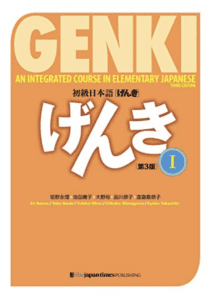
Levels 1, 2, 3, 4, 5, 1&2, 3&4, and 5&6 students:
GENKI I (An Integrated Course in Elementary Japanese) (3rd Edition)
published by The Japan Times | ISBN: 978-4789017305
Price at Japan Society: $45
Level 5&6 students: you will also need to purchase the Genki II textbook about halfway through the course.

Levels 6, 7, 8, 9, 5&6, and 7&8 students:
GENKI II (An Integrated Course in Elementary Japanese) (3rd Edition)
published by The Japan Times | ISBN: 978-4789017329
Price at Japan Society: $45
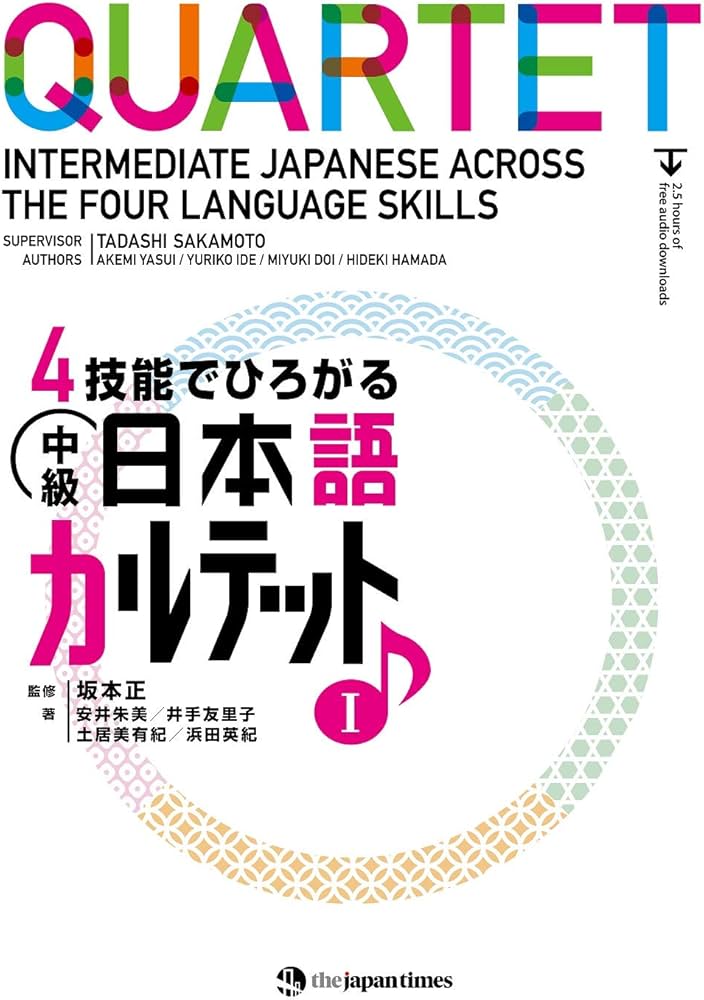
Level 10.1, 10.2, and 10.3 (Quartet, Parts 1-3 ):
Quartet: Intermediate Japanese Across the Four Language Skills Textbook 1
published by The Japan Times | ISBN: 978-4-7890-1695-7
Price at Japan Society: $45
Instructors
Japan Society’s 120th anniversary initiatives and related programs are generously supported by Champion Sponsor, MUFG Bank, Ltd.; Advocate Sponsor, Mizuho Americas; and Friend Sponsor, Mitsubishi Corporation (Americas).

Japan Society programs are supported by the New York State Council on the Arts with the support of the Office of the Governor and the New York State Legislature.

Support for Japan Society’s Language Center is provided, in part, by Mark F. Goldfield and Mary E. Hatch, Christopher Hong, Steven Giordano, and Dr. Bic Kanayjorn.
